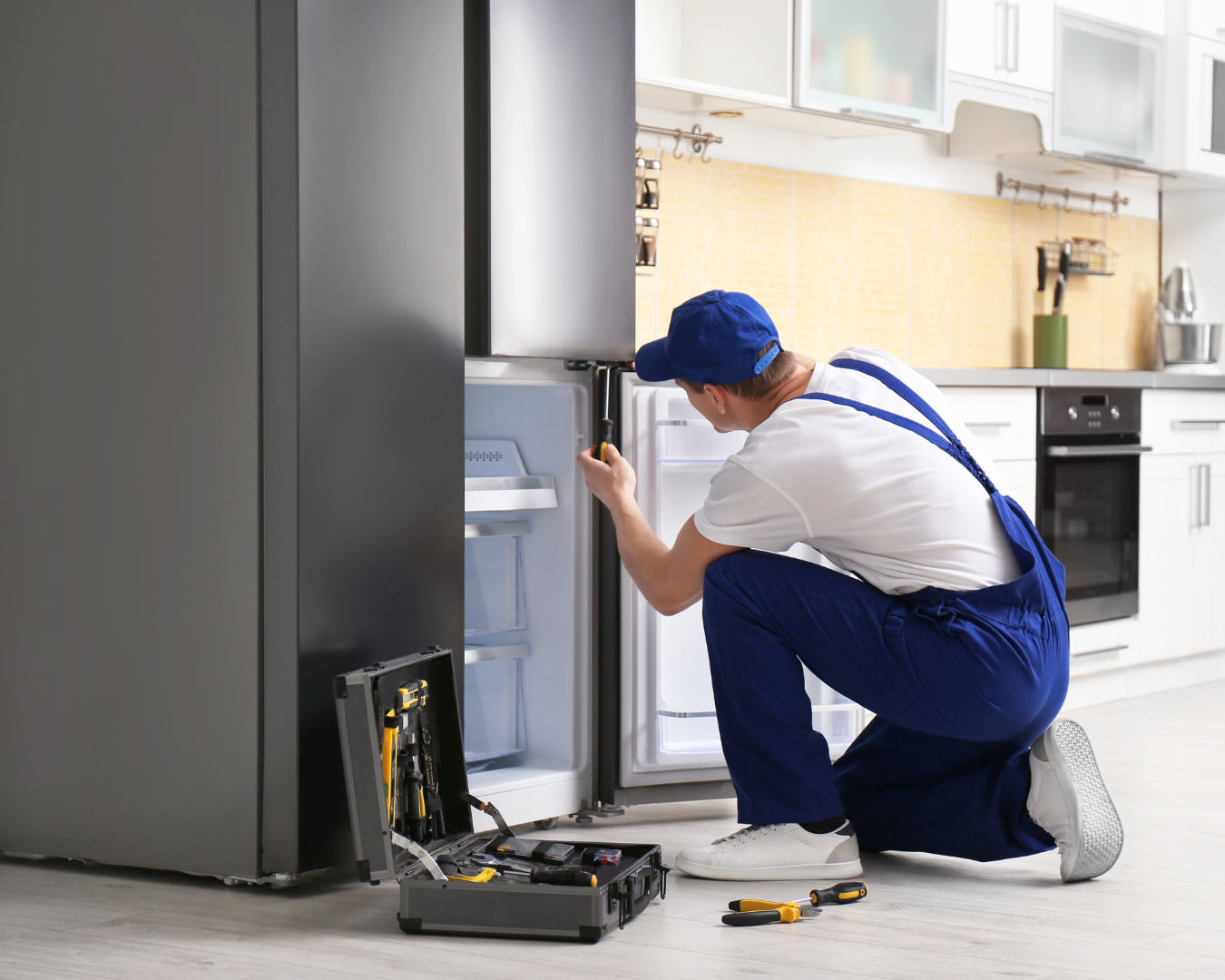Troubleshooting Common Refrigerator Problems and Solutions
Refrigerators are essential appliances in our homes, keeping our food fresh and safe. However, like any other appliance, they can sometimes run into problems. Knowing how to troubleshoot these issues can save you time, money, and the hassle of spoiled food. In this blog post, we’ll explore some common refrigerator problems and their solutions.
Refrigerator Not Cooling
Problem: One of the most common issues is when the refrigerator isn’t cooling properly. This can lead to spoiled food and a lot of frustration.
Solution:
- Check the Thermostat: Ensure that the thermostat is set to the correct temperature. For refrigerators, this is typically around 37°F (3°C) and for freezers, it’s 0°F (-18°C).
- Clean the Condenser Coils: Dust and debris on the condenser coils can impede the cooling efficiency. Locate the coils, usually at the back or bottom of the fridge, and clean them with a vacuum or a brush.
- Inspect the Door Seals: Worn or cracked door seals can let cold air escape. Check the seals for any signs of damage and replace them if necessary.
- Ensure Proper Airflow: Make sure there’s enough space around the refrigerator for air to circulate. Avoid overpacking the fridge as this can block the vents and restrict airflow.
Refrigerator Making Strange Noises
Problem: Unusual noises coming from the refrigerator can be alarming. These noises can range from humming and buzzing to rattling and knocking.
Solution:
- Identify the Source: Determine where the noise is coming from. The back of the fridge usually houses the compressor and condenser fan, while the inside might have issues with the evaporator fan.
- Level the Fridge: Ensure that the refrigerator is level. An uneven fridge can cause vibrations and noises. Adjust the feet or place shims under the fridge to level it.
- Check the Fan Blades: Dust or debris on the fan blades can cause rattling noises. Clean the blades and ensure they spin freely.
- Inspect the Compressor: A loud humming noise could indicate an issue with the compressor. If the noise persists, consider calling a professional to check it.
Water Leaking from the Refrigerator
Problem: Water leakage is another common problem, often leaving puddles on your kitchen floor.
Solution:
- Check the Drain Pan: The drain pan collects condensation and allows it to evaporate. If it’s cracked or overflowing, empty and clean it.
- Unclog the Defrost Drain: A clogged defrost drain can cause water to back up and leak. Clear any blockages using a pipe cleaner or a mixture of warm water and baking soda.
- Inspect the Water Supply Line: If your refrigerator has a water dispenser or ice maker, check the supply line for leaks. Tighten any loose connections or replace damaged hoses.
Ice Maker Not Working
Problem: When the ice maker stops producing ice, it can be quite inconvenient, especially in the summer.
Solution:
- Check the Water Supply: Ensure that the water supply line to the ice maker is not kinked or blocked. Make sure the valve is open.
- Inspect the Ice Maker Arm: If the arm is stuck in the off position, the ice maker won’t produce ice. Move the arm to the on position.
- Defrost the Ice Maker: Ice buildup can block the mechanism. Defrost the ice maker by turning off the refrigerator and allowing the ice to melt, or use a hairdryer to speed up the process.
- Replace the Water Filter: A clogged water filter can restrict water flow. Replace the filter according to the manufacturer’s instructions.
Refrigerator Runs Constantly
Problem: If your refrigerator seems to run all the time, it could lead to higher energy bills and excessive wear on the appliance.
Solution:
- Clean the Condenser Coils: Dirty coils force the fridge to work harder to cool. Clean them regularly.
- Check the Door Seals: Ensure the seals are tight and not letting warm air in.
- Adjust the Thermostat: Setting the thermostat too low can cause the refrigerator to run continuously. Adjust it to the recommended temperature.
- Inspect the Defrost Timer: A faulty defrost timer can cause the fridge to run continuously. If it’s not advancing, it may need to be replaced.
By understanding and addressing these common refrigerator problems, you can keep your appliance running smoothly and efficiently. Regular maintenance, such as cleaning the coils and checking the door seals, can prevent many issues from occurring in the first place. However, if you’re ever in doubt or if the problem persists, it’s always best to consult a professional technician to avoid further damage.
Keep your refrigerator in top shape and enjoy the peace of mind that comes with knowing your food is stored safely and efficiently!

